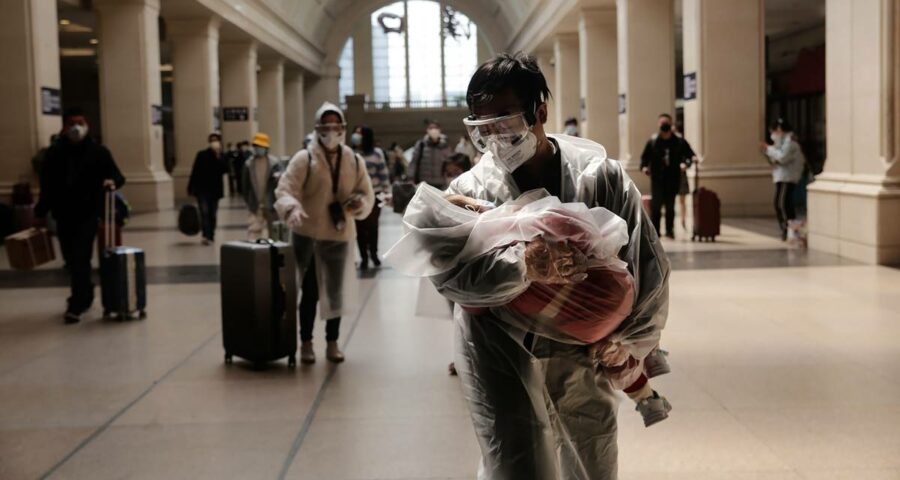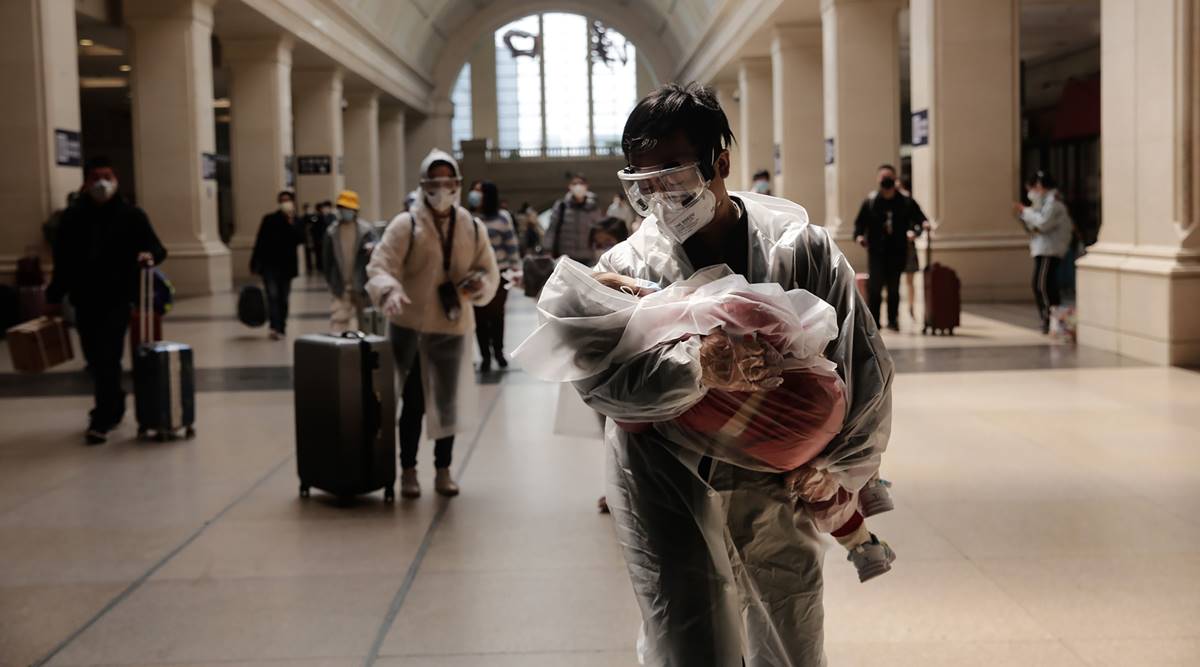The documentary “Days and Nights in Wuhan” features contributions from 30 filmmakers portraying the suffering and sacrifices made by the city’s 11 million residents, medical staff and front-line workers.
China is rolling out a state-backed film praising Wuhan ahead of the anniversary of the 76-day lockdown in the central city where the coronavirus was first detected.
The documentary “Days and Nights in Wuhan” features contributions from 30 filmmakers portraying the suffering and sacrifices made by the city’s 11 million residents, medical staff and front-line workers as they battled the virus that began racing through the city in December 2019.
The film is one of at least three documentaries released about the Wuhan lockdown, including “Coronation” by activist artist Ai Weiwei, who now lives abroad following a campaign of harassment by China’s ruling Communist Party.
While “Days and Nights in Wuhan” may benefit from strong state support, Ai’s “Coronation” has been rejected by festivals, theaters and streaming services. He attributes the phenomenon to fears over offending the ruling party, which controls both what movies can be shown in China and what Chinese films can be displayed abroad.
The lockdown imposed on Jan. 23, 2020, was eventually extended to surrounding areas in Hubei province, confining some 56 million people to their homes.
The film directed by Cao Jinling debuted in Wuhan and goes into general release in other Chinese cities on Friday. It’s not clear if there are plans to show it overseas.
“We wanted to record the journey of battling against the COVID-19 epidemic via motion picture. Some of the details, including the intense care, anxious waiting, heartbreaking farewells and hopeful rebirths, might strike a chord with viewers,” Cao was quoted as saying by state broadcaster CCTV.
In the trailer, medical staff repeatedly express their determination to prevail over the outbreak. “I have a burning love for me hometown and I will do whatever I can to save it,” says one ambulance driver.
Hospitals and morgues were overwhelmed at the height of the crisis and Wuhan accounts for the bulk of China’s death toll of 4,635.
Following a thinly attended showing in Wuhan on Friday, Wang Yu said the movie had awakened both memories of the trauma of lockdown and fears for what might still lie ahead.
“It’s hard to describe. It’s been a year since then, and to think back now, it’s still painful,” said Wang, 31, who said relatives of her husband who died in the outbreak appeared in the film.
“There is the mutated virus, there’s fear. It’s the second Lunar New Year holiday that we have to pass like this,” she said. “Things are little better than last year but I’m worried, its not completely over. You’re still under the effect of the virus, the fear and the terror.”
The film echoes China’s official line that the measures it took, including the lockdown, bought precious time for the world to prepare for the pandemic. Critics say habitual Communist Party secrecy and weak control measures allowed the virus’ initial spread.
The preponderance of opinion among experts is that the coronavirus emerged from Wuhan, possibly from a wholesale food market where live wild animals that could carry the virus were sold. China’s government, however, has sought to cast doubts on the concept of Wuhan as the source of the pandemic, pushing fringe theories that the virus was actually brought from outside the country, possibly by U.S. soldiers.
The line seems to have gone down well among many Wuhan residents, who maintain the virus came from elsewhere and see themselves purely as victims.
After months of negotiations, China finally gave permission last week for the World Health Organization to send a team of international experts to begin investigating the virus’ origins. They are currently undergoing two weeks of quarantine.
A panel of experts commissioned by the WHO criticized China and other countries this week for not moving to stem the initial outbreak earlier, prompting Beijing to concede it could have done better but also to defend its response.
Wuhan has been largely free from the virus since the end of lockdown while smaller outbreaks have set off renewed containment measures in many Chinese cities.
Source: Read Full Article


